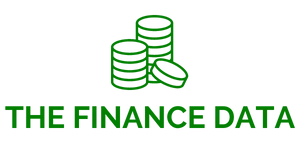
Alter Domus White Paper Highlights Shift to Bundled Fund Administration in Alternative Investing
Alter Domus, a globally recognized provider of technology-enabled fund administration, private debt, and corporate services to alternative investment managers, has unveiled its latest whitepaper titled “Integrated Solutions Driving Operational Efficiency at Alternative Investment Firms.” This insightful report delves into the evolving operational models of alternative investment managers, illustrating the steps these firms are taking to enhance operational efficiency, improve scalability, and meet increasing regulatory requirements.
The Changing Landscape of Alternative Investment Management
To gain a deeper understanding of these industry shifts, Alter Domus commissioned McKinsey & Company to conduct a comprehensive, data-driven analysis. The study surveyed 192 professionals who actively utilize Financial Advisor (FA) and/or Debt Capital Management (DCM) services across North America, Europe, and Asia Pacific. Additionally, the report incorporates an in-depth Q&A session with Alter Domus Chief Operating Officer (COO) Michael Janiszewski, offering a well-rounded perspective on why general partners (GPs) are increasingly opting to outsource operational functions and how they can position themselves for sustainable, long-term success.
According to Janiszewski, “Alternative investment managers are rethinking how they operate in response to growing investor demands for greater transparency, faster access to information, and better reporting. With increasing regulatory pressures and rising costs, it’s no surprise that more GPs are turning to integrated solutions. A great partnership makes all the difference, which is why we’ve invested heavily to meet this need. By offering an integrated offering, we help managers streamline their operations so they can focus on what they do best: delivering value to investors.”
The Shift Toward Integrated Solutions
As the investment landscape becomes more complex due to stricter regulations, rapid technological advancements, and evolving investor expectations, alternative investment firms are adopting a more integrated approach to fund administration. The whitepaper highlights a growing trend within the industry where firms are increasingly favoring comprehensive, outsourced solutions rather than managing these operational complexities in-house.
This shift can be attributed to several key factors:
- Rising Costs and Compliance Challenges – Alternative investment firms are under immense pressure to meet regulatory requirements, which often differ across jurisdictions. Managing these compliance demands in-house requires significant investment in both technology and human resources, making outsourcing an attractive alternative.
- Investor Expectations for Greater Transparency – Institutional investors now expect higher levels of transparency and more detailed reporting. To remain competitive, fund managers need to adopt solutions that enhance their ability to provide real-time data, audit trails, and risk management insights.
- Technological Advancements in Fund Administration – The financial industry has witnessed a surge in the adoption of automation, artificial intelligence (AI), and cloud-based solutions. By partnering with specialized fund administrators who leverage these technologies, alternative investment firms can optimize efficiency and focus on core investment activities.
Key Findings from the Whitepaper

The whitepaper presents several critical insights that shed light on the operational challenges alternative investment managers face and how they are addressing them:
1. Challenges in Expanding Operations
As alternative investment firms scale their operations, they encounter significant hurdles, including:
- Talent Shortages: Hiring and retaining skilled professionals in fund administration and compliance remains a challenge, especially as competition for expertise intensifies.
- Technology Integration: Many firms struggle to integrate emerging technologies with legacy systems, which can hinder operational efficiency and real-time data analysis.
- Jurisdictional Compliance: Navigating varying regulatory frameworks across multiple regions can be both costly and complex. A misstep in compliance can result in penalties and reputational damage.
2. Investor-Driven Demands for Transparency
Institutional investors now expect increased visibility into fund operations, necessitating:
- Enhanced Reporting Mechanisms: Investors seek granular, real-time reporting to monitor fund performance and risk exposure.
- Robust Risk Management: Heightened scrutiny of investment risks has led fund managers to adopt advanced risk management frameworks and compliance monitoring solutions.
- Seamless Communication: Investors require faster access to information, making it imperative for firms to adopt technology-driven solutions that facilitate efficient reporting and real-time data sharing.
3. The Expanding Role of Fund Administrators
Fund administrators are no longer just back-office service providers. Their role has evolved to encompass:
- Expertise Across Asset Classes: A capable fund administrator must support a diverse range of assets, including private equity, real estate, infrastructure, and private debt.
- Regulatory Guidance: With regulations continuously evolving, fund administrators play a pivotal role in helping investment firms navigate complex legal landscapes.
- Comprehensive Solutions for Operational Efficiency: Integrated fund administration solutions that combine technology, compliance, and back-office functions can provide investment firms with a competitive edge.
The Growing Need for Strategic Outsourcing
Given the challenges outlined above, an increasing number of alternative investment firms are turning to specialized fund administration providers like Alter Domus to handle complex operational functions. By outsourcing these critical tasks, investment firms can achieve several benefits:
- Cost Efficiency: Outsourcing reduces overhead costs associated with maintaining in-house teams for fund administration, compliance, and reporting.
- Operational Scalability: A trusted fund administrator provides scalable solutions that can adapt to a firm’s evolving needs, whether they are expanding into new asset classes or entering different regulatory jurisdictions.
- Risk Mitigation: By leveraging the expertise of a fund administrator, investment firms can minimize compliance risks and ensure adherence to industry best practices.
The Future of Alternative Investment Operations
The alternative investment industry is undergoing significant transformation, with operational efficiency becoming a top priority for fund managers. As regulations become more stringent, technology continues to evolve, and investors demand greater transparency, firms must reevaluate their operational models.
The findings in Alter Domus’ whitepaper emphasize the advantages of integrated solutions and highlight the increasing reliance on strategic outsourcing to streamline operations. Fund managers who proactively embrace these changes and partner with leading fund administrators will be best positioned for long-term success in an increasingly complex investment landscape.
For firms navigating this evolving environment, leveraging the expertise of a specialized fund administration provider like Alter Domus can be a game-changer. By adopting integrated solutions, alternative investment managers can enhance efficiency, improve scalability, and meet the ever-growing demands of both investors and regulators alike.




